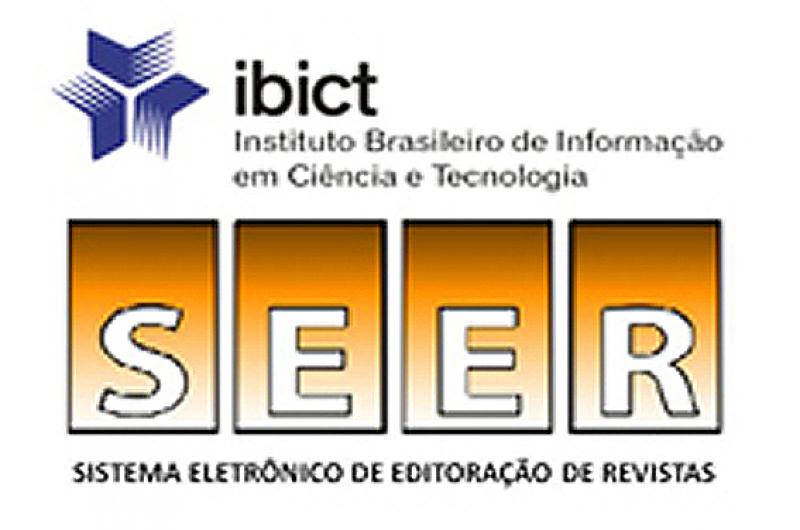Teachers' conceptions of affectivity in initial teacher training in the light of Implicit Statistical Analysis
Visualizações: 444DOI:
https://doi.org/10.31416/rsdv.v13i2.1132Keywords:
Affectivity, teacher training, self-image, beliefAbstract
This article aimed to discuss the conception of affectivity among psychology teachers involved in teacher training courses in Brazil and France, with the goal of understanding how these conceptions influence the practices and awareness of teachers in training. The influences of culture and affectivity on teacher's identity became a significant topic in research during the late 19th and 20th centuries, yet remain in need of further exploration. Therefore, we focused on understanding how self-image and feelings of efficacy can impact the engagement and commitment of professionals undergoing training. In this regard, we drew upon theoretical contributions from Freire (1996), Wallon (1968), Vygotsky (1998), and Leite (2018) regarding the influences of culture and affectivity on teacher education. Methodologically, data collection, processing, and analysis were conducted using a questionnaire administered via the LimeSurvey@ platform to 18 teacher educators from INSPÉ in Lyon, Marseille, and Paris, France, and from São Paulo State University "Júlio de Mesquita Filho" - UNESP, SP, Brazil. Data analysis was supported by the software CHIC 7, within the theoretical-methodological framework of Implicit Statistical Analysis (ISA). The findings revealed that affective components are present and significantly contribute to the development of self-efficacy among these professionals throughout their training, influencing the persistence of a negative perception that persists in teacher training courses today.
References
ALMOULOUD, S. A.; GRAS, R.; Régnier, J.-C. A.S.I. – EDITORIAL - Análise estatística implicativa: mais uma vez, o que é? Educação Matemática Pesquisa, vol.16, n.3, p.623-1087, 2014. Disponível em: https://revistas.pucsp.br/index.php/emp/article/view/21540/pdf_1. Acesso em: mar/2023.
AUDRIN, C.; SANDER, D. Les biais dans les processus décisionnels, dans Laurent Hirsch & Christophe Imhoos (éds.), Arbitrage, médiation et autres modes pour résoudre les conflits autrement. Zurich: Schulthess Éditions Romandes, 2018. p. 463-471.
AUDRIN, C. Les émotions dans la formation enseignante : une perspective historique. Recherches en éducation [En ligne], 41 | 2020. mis en ligne le 01 juin 2020, consulté le 02 mars 2022. URL: http://journals.openedition.org/ree/541. DOI: https://doi.org/10.4000/ree.541.
A.S.I. – Analyse Statistique Implicative Références bibliographiques sur l'Analyse Statistique Implicative https://sites.univ-lyon2.fr/asi/ref/refasi, 2024.
CARVALHO, A. B. A relação professor e aluno: paixão, ética e amizade na sala de aula. 1.ed. Curitiba: Appris, 2016. 235p.
COUTURIER, R.; BODIN A.; GRAS, R. A classificação hierárquica implicativa e coesiva. Manual Curso CHIC versão 2.3; 2004.
Disponível: https://sites.unipa.it/grim/asi/asi_03_gras_bodin_cout.pdf. Acessado em set. 2023.
DAMASIO, A. R. Spinoza avait raison : joie et tristesse, le cerveau des émotions. Paris: Poche Odile Jacob. DL 1 vol, 2005.
DAMÁSIO, A. R. O Erro de Descartes: Emoção, Razão e o Cérebro Humano. Trad. Dora Vicente, Georgina Segurado, 3a ed., São Paulo: Companhia das Letras, 2012.
FRANCELINO, R. Emoções e sentimentos no processo de ensino e aprendizagem: contribuições da teoria de Henri Wallon. São Paulo: Editora Dialética, 2022.
FRANCELINO, R. Lugar e papel da afetividade na formação inicial de professores no Brasil e na França: análise das representações dos formadores e de suas práticas pedagógicas. 2023. Tese (Doutorado em Educação) - Faculdade de Filosofia e Ciências, Universidade Estadual Paulista (Unesp), Marília, 2023.
FREIRE, P. Pedagogia da autonomia: saberes necessários à prática educativa. 25. Ed. São Paulo: Paz e Terra, 1996. (Coleção Leitura)
GRAS, R.; REGNIER, J.-C.; GUILLET, F. Analyse statistique implicative: une méthode d’analyse de données pour la recherche de causalités. Toulouse: Éditions Cépaduès, 2009.
GRAS, R.; REGNIER, J. C.; MARINICA, C.; GUILLET, F. (Dir.). L'analyse statistique implicative Méthode exploratoire et confirmatoire à la recherche de causalités. Cépaduès Editions, 2013. pp.522, 978.2.36493.056.8. ?hal-00801452?
GRAS, R.; REGNIER, J.-C.; LAHANIER-REUTER, D.; MARINICA, C.; GUILLET, F. Analyse Statistique Implicative. Des Sciences dures aux sciences humaines et sociales. Toulouse: Éditions Cépaduès, 2017.
LARGY, P.; SIMOËS-PERLANT, A.; SOULIER, L. Effet de l’émotion sur l’orthographe d’élèves d’école primaire. Neuchâtel: Revue suisse des sciences de l’éducation, vol. 40, n. 1, 2018. p. 191-216, https://hal.archives-ouvertes.fr/hal-01663140.
LEITE, S. A. S. Afetividade nas práticas pedagógicas. Temas em Psicologia [en linea]. 2012, 20(2), 355-368. ISSN: 1413-389X. Disponível em: https://www.redalyc.org/articulo.oa?id=5137514 40006. Acesso em: ago/2020.
LEITE, S. A. S. Apresentação. In: Leite, S. A. S. Org. Afetividade: as marcas do professor inesquecível. Campinas: SP, Mercado das Letras, 2018.
PEKRUN, R.; GOETZ, T.; DANIELS, L. M.; STUPNISKY, R. H.; PERRY, R. P. Boredom in achievement settings: Exploring control-value antecedents and performance outcomes of a neglected emotion. Journal of Educational Psychology, vol. 102, n. 3, 2010. p. 531-549, https://doi.org/10.1037/a0019243.
PEKRUN, R.; Stephens, E. J. Achievement Emotions: A Control-Value Approach. Social and Personality Psychology Compass, vol. 4, n. 4, 2010. p. 238-255.
PEKRUN, R.; STEPHENS, E. J. Academic emotions. IN: Karren Harris, Steve Graham, Tim Hurdan, APA educational psychology handbook, Volume 2, Washington, American Psychological Association, 2012. p. 3-31.
RÉGNIER, J.C., ANDRADE, V. L. V. X, (org.) Análise Estatística Implicativa e Análise de Similaridade no Quadro Teórico e Metodológico das Pesquisas em Ensino de Ciências e Matemática com a utilização do software CHIC. Recife: Editora Universitária da UFRPE 2020. http://www.editora.ufrpe.br/ASI.
SCHERER, K.R. What are emotions? And how can they be measured? London: Social Science Information, 44, 2005. 695-729. https://doi.org/10.1177/0539018405058216.
VYGOTSKY, L. Théorie des émotions: étude historico-psychologique. Paris: L'Harmattan, 1998.
Vygotsky, L. Pensamento e linguagem. São Paulo: Martins Fontes, 2005.
Wallon, H. A evolução psicológica da criança. Lisboa: Edições 70, 841968.
Downloads
Published
How to Cite
Issue
Section
License
Copyright (c) 2025 Revista Semiárido De Visu

This work is licensed under a Creative Commons Attribution 4.0 International License.















